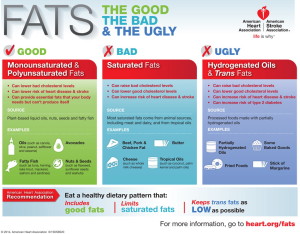Diabetes Breakthrough: Lipids May Offer Protection
In the continual search for new treatments for diabetes, a recent study may have discovered that lipid levels can offer some protection against the disease. The curiously counterintuitive findings have provoked debate, and are only a starting point in this type of research rather than a firm conclusion, but if true this could lead to novel treatment options which will help lower the risk for people developing diabetes at some point in their lives. Such preventative medicine could revolutionize how we treat diabetes, eliminating the risks before the disease progresses or even occurs. What’s shocking about this new study, is that it suggests a new area of research in the most unlikely of places: lipids.
What is a Lipid?
Cutting through the jargon, a lipid is another word for any compound in the blood which is not soluble in water. This includes fatty acids, oils, and even steroids when supplemented. There are also a number of naturally occurring lipids called Glycerides which also come into play. These lipids are of interest to medical researchers because fatty acids have long been implicated in diseases such as stroke and heart disease. They can essentially clog up arteries and so cause potentially life-threatening situations. The rational, therefore, has always been to limit lipids through either reducing fat levels in food or medicating with blood thinners, such as warfarin or statins which reduce lipids levels.
Much research is focused on fatty lipids and the damage they can do. Check out the infographic below for more on fatty lipids and their sources:

Courtesy of American Heart Association
Lipids and Diabetes Controversy
You’d be forgiven if you’ve already assumed that higher levels of lipids have been found to cause diabetes, based on the above medical understanding that lipids can be dangerous. What’s striking about this study is that it argues that by increasing the presence of lipids in the blood, that diabetes risk is reduced, highlighting lipids as a potential treatment area for preventing the disease.
This has sparked widespread controversy over a fear that medical advice will in some way be muddied. The general public will not know which piece of advice to follow – avoid increasing lipids in the blood to lower stroke and cardiovascular disease risks, or increase lipids in the blood to reduce risk of diabetes. It’s a logistical nightmare, and one which isn’t going away any time soon. But what does the study mean for diabetes?
The Study
Carried out at the University of Oxford in the UK, the study took the form of a comprehensive analysis of how some forms of lipids affect the human body. Newer genetic methods were used during the study to observe the effect of specific types of lipids, LDL-C, HDL-C and TG. It’s long been suspected that LDL-C, a form of cholesterol, increases the risk of heart disease and stroke, perhaps even some cancers, and this study supports this assertion for heart disease and stroke at least. TG, short for triglycerides was also found to increase these risks, but with a startling counterpoint.
What’s shocked many in the medical world is that both LDL-C and TG levels were found to protect against diabetes. In other words, the more LDL-C and TG in your blood, the better a person’s chances of fighting off diabetes entirely.
Statins: A Possible Explanation?
Senior author of the study, Dr Michael V. Holmes offered a possible reason for these findings during an interview with Heartwire: “We know from clinical trials and genetic studies that statins increase the risk of diabetes, and what we tried to do here is ask the question, ‘Is this something unique to statins or is this a general characteristic of LDL-cholesterol lowering?’ And our data suggest the latter.”
What then, does this mean for treatment of diabetes? Well, first of all these are preliminary findings. A lot can happen as others carry out the same experiment to explore the veracity of the claims. It’s possible that there are some issues with how the study was carried out which could explain the shocking conclusion.If these claims are supported, however, then it means that medical science can look at the relationship between cholesterol levels and diabetes more closely.
It’s important that those at risk of diabetes should not look upon this study as a green light for eating high cholesterol foods, far from it as this would only put said individual’s health at further risk. A balanced, low fat diet is still recommended.
However, it may be that the relationship between diabetes, LDL-C and TG levels is more complex than previously thought. This could offer up new forms of treatment in time.
For more information on cutting-edge diabetes research, stay tuned to the fightdiabetes.com blog!
- Adolescents Living With Diabetes - August 6, 2022
- Diabetes Insipidus Symptoms, Causes, & Prevention - July 26, 2022
- Insulin Shortage May Affect Almost Half of the Diabetics by 2030 - November 24, 2018




